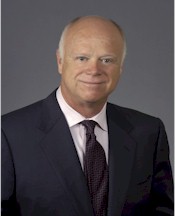|
|
|||||
|
Be Neutral |
|||||
|
CaseWatch
Special: A recent decision by the Georgia Court of Appeals, DeKalb Med. Ctr. Inc. v. Obekpa, A120160 (05/02/12), affirms that under state law, members of health care peer review panels are immune from both equitable and monetary damages claims for actions they take against health care professionals. In 2008, the DeKalb Medical Center, Inc. appointed Dr. Adah E. Obekpa to its staff and granted him clinical privileges. Shortly thereafter, hospital staff noted the doctor’s failure to properly document patient treatments. The chief of the Department of Medicine spoke with Dr. Obekpa about the documentation issue, and the doctor was informed that his conduct would be monitored. Despite this warning, the hospital continued to receive complaints about the doctor’s performance. Several months later, after his conduct had not improved, the doctor was offered the choice to resign or to be subject to an investigation and peer review. Dr. Obekpa refused to resign. The hospital’s Medical Executive Committee (MEC) appointed nine doctors to a credentials committee, which investigated and recommended that the number of patients treated by Dr. Obekpa should be limited for a period of six months, that his compliance should continue to be monitored, and that he should receive additional training. After the MEC adopted the credentials committee’s recommendations, the doctor requested an appeal hearing. A panel of medical professionals conducted a three-day appeal hearing at which the doctor was represented by counsel. The appeal panel found that the MEC’s recommendations were supported by the evidence. However, the panel recommended less severe corrective action in order to avoid adverse impacts on the doctor’s career. The doctor appealed the appeal panel decision to the hospital’s board of directors, arguing that because the appeal panel made different recommendations than the MEC, the panel should have found also that the MEC’s findings were not supported by the evidence. The hospital board of directors decided to adopt the MEC’s original recommendations and further decided to reject the doctor’s application for reappointment to the hospital staff. One more appeal hearing before the board was conducted in which the doctor’s attorney acknowledged that the peer review process was fair and had worked as intended, but questioned the hospital board’s “unfettered discretion to ignore the [appeal] panel’s recommendation.”
The board
issued its final decision and denied Dr. Obekpa’s application for
reappointment to the hospital staff, stating in part: In particular, you were not responsive to patients, you inappropriately utilized the ICU, you delayed seeing patients, delayed patient discharges and delayed ordering care. Moreover, you contributed little to the management of your patients, often depending almost exclusively on consultants instead. Furthermore, there was inadequate documentation of your care, including progress notes of little clinical value, illegible progress notes, preprinted progress notes, missing daily assessments, and missing or unclear treatment plans. These concerns go to the very core of patient care. The doctor filed a complaint for equitable relief in superior court to have the recommendation of the appeal panel reinstated, asserting in part that the hospital board’s failure to follow the panel recommendations was motivated by malice. See O.C.G.A. § 31-7-132(a). The superior court rejected the hospital’s motion to dismiss the complaint, and the hospital appealed. DeKalb Med. Ctr. Inc. v. Obekpa, A120160 (05/02/12).
The Court
of Appeals reversed the superior court, finding nothing in the record to
support the claim of malice. The appellate court noted no evidence that
the investigation or any part of the peer review process had been unfair.
The court then concluded: Given the record in this case, we must conclude that the superior court erred in finding that there was evidence from which a jury could infer that the peer review process was motivated by malice. Therefore, the hospital is entitled to immunity from Obekpa’s equitable claims. O.C.G.A. § 31-7-132(a). The appeals court also noted that under the Health Care Quality Immunity Act of 1986, 42 USC § 1101 et seq., peer review panels are immune from liability for monetary damages if their actions are taken: (1) in the reasonable belief that the action was in the furtherance of quality health care; (2) after a reasonable effort to obtain the facts of the matter; (3) after adequate notice and hearing procedures as are fair to the physician under the circumstances; and (4) in the reasonable belief that the action was warranted by the facts known after such reasonable effort to obtain facts and after meeting the procedural requirements. The appeals court further noted that the plaintiff bears the burden of proving that the peer review process was unreasonable under an objective standard. In the absence of such proof, the court said, the presumption is that the standards for immunity for the review panel have been met. Finally the appeals court also noted that the HCQIA requires health-care entities to report to the National Practitioner Data Bank professional review actions that affect the clinical privileges of a physician for a period longer than 30 days. 42 USC § 11133(a)(1): “Having found the hospital immune from suit … there exists no basis … to prohibit the hospital from reporting its adverse decision … to the data bank,” the court wrote. Note to Georgia ADR practitioners: The federal HCQIA provides immunity to health care peer review panels for monetary damage claims, but is silent on equitable claims. This Court of Appeals decision affirms that such immunity extends to equitable claims under state law, O.C.G.A. § 31-7-132(a). To claim immunity, a peer review panel, as in other ADR formats, must show sufficient facts for its action, an adequate investigation, proper notice to the physician of the procedures involved, and the reasonable belief of the panel that the decision was warranted by the facts.
|
|||||

